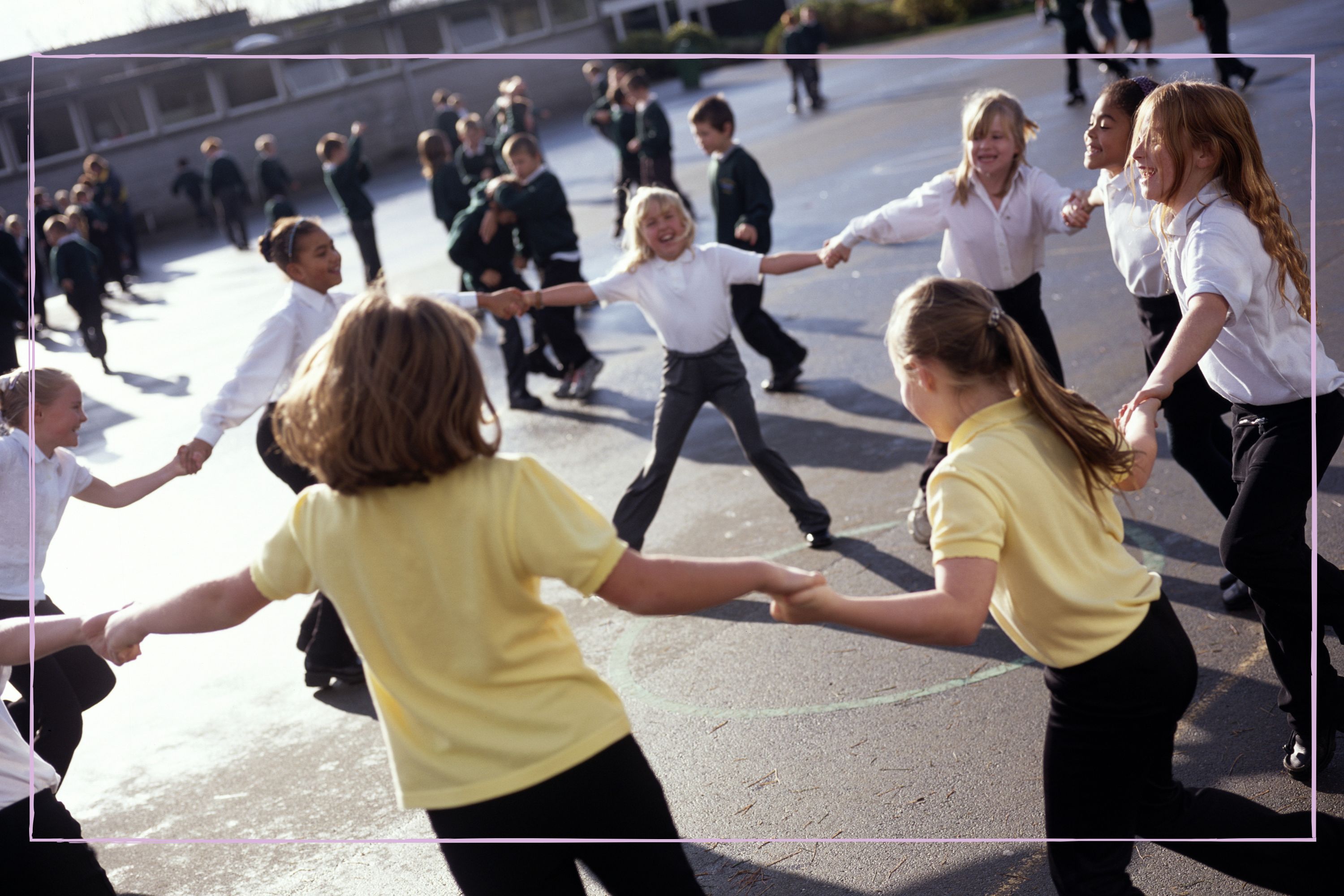Campaigners are calling to revive play in schools to tackle an 'escalating' health crisis - here's what we know
A report has suggested that playtime needs to be a priority


School breaks have shrunk, and campaigners are worried about the impact less play time has on children's health.
It's no secret that play is important for child development. In fact, there are eight types of play kids need to support their development - from independent and imaginative play to cooperative and competitive. But with recent news that one in three children spend less than three hours a week playing, there is some concern that children aren't active enough, which can have a detrimental impact on their physical and mental health.
That's why campaigners are calling on the government to prioritise playtime in schools. According to a report from Children's Alliance, play "is a simple, inexpensive and joyful way to address many of the major challenges facing society and its children; addressing the alarming mental health crisis and obesity epidemic and helping to prepare children for an ever-changing workforce."
The report, which was sponsored by not-for-profit organisation Outdoor Play and Learning (OPAL), is titled A Plan for Play, and outlines a vision for the Department for Education to require every school to have a play plan that would be subject to Ofsted inspection.
Speaking to The Guardian, founder and director of OPAL, Michael Follett, said: "There is a current and escalating crisis in childhood. Children are less fit and less active. They are increasingly suffering from mental health problems at a scale we have never seen before.
"Schools are now like a wildlife reserve for childhood - they could be the space that saves some of what is special for children. Even if this is the only play they ever experience it can make a significant difference in their lives - and for some children it really is the only play they get."
However, schools are facing challenges when it comes to prioritising playtime - one of which is curriculum pressure, which has forced school leaders to cut breaks short. A 2019 report from the University College London Institute of Education found break times in England had shrunk over time, with the youngest primary children - aged five to seven - having 45 minutes less break time per week than children of the same age did in 1995, while secondary pupils aged 11-16 have lost 65 minutes.
Parenting advice, hot topics, best buys and family finance tips delivered straight to your inbox.
But the report also calls for better protection for play in all areas of children’s lives, recommending more ringfenced funding for playgrounds at local authority level, and suggesting the need to play should be embedded in the 2010 Equality Act as a protected characteristic.
Earlier this year, MPs began an inquiry into how better planning could enhance the wellbeing of children, as well as looking into how they use outside spaces. A coalition of charities, which includes Playing Out, Save the Children UK and Wildlife and Countryside Link, said children wanted to be outside and be active, playing with friends and walking or cycling to school - but they faced barriers to being able to do so.
In a joint statement, the charities said, "Government policy has not addressed some of the root causes of this - and in some cases has added to the problem. A child-focused built environment policy could transform children’s lives, health and wellbeing."
In related news, here are three reasons why your child isn't playing with their toys and what to do about it. Meanwhile, one psychologist has revealed why it's ok if you don't like playing with your child and it turns out screens aren't the only reason kids aren't playing outdoors, according to UK charities.

Ellie is GoodtoKnow’s Family News Editor and covers all the latest trends in the parenting world - from relationship advice and baby names to wellbeing and self-care ideas for busy mums. Ellie is also an NCTJ-qualified journalist and has a distinction in MA Magazine Journalism from Nottingham Trent University and a first-class degree in Journalism from Cardiff University. Previously, Ellie has worked with BBC Good Food, The Big Issue, and the Nottingham Post, as well as freelancing as an arts and entertainment writer alongside her studies. When she’s not got her nose in a book, you’ll probably find Ellie jogging around her local park, indulging in an insta-worthy restaurant, or watching Netflix’s newest true crime documentary.